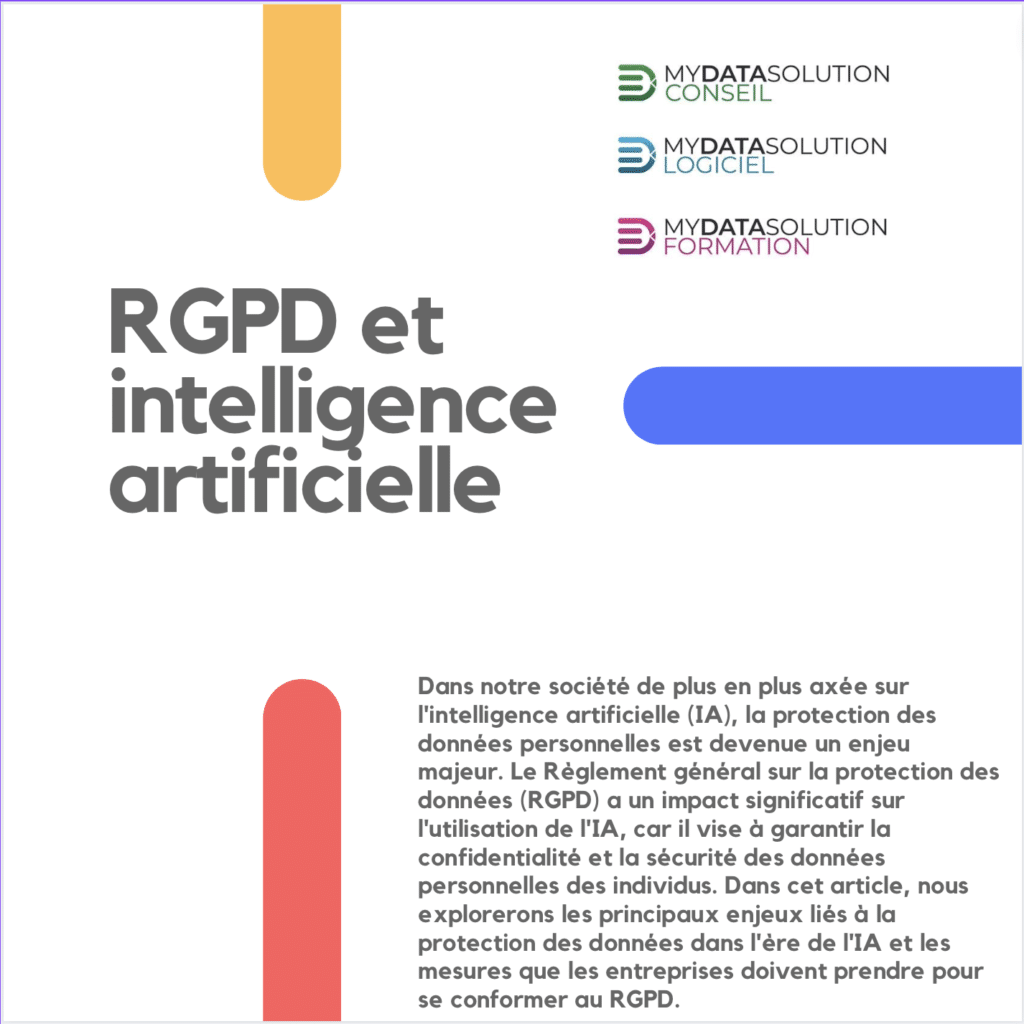RGPD and artificial intelligence: Data protection issues in the AI era
In our increasingly artificial intelligence (AI)-driven society, the protection of personal data has become a major issue. Visit General Data Protection Regulation (GDPR) has a significant impact on the use of AI, as it aims to ensure the privacy and security of individuals' personal data. In this article, we'll explore the key data protection issues in the AI era and the steps companies need to take to comply with the GDPR.
AI and the collection of personal data
Artificial intelligence is based on the analysis of large quantities of data, including personal data. Companies often use AI algorithms to process this data in order to improve products and services, personalize recommendations and automate certain tasks. However, the collection of personal data to feed AI models raises concerns in terms of privacy and data protection.
Informed and specific consent in AI
When personal data is used in AI systems, the informed and specific consent of individuals is essential. Companies must obtain clear consentIndividuals must be fully informed of the purpose for which their data will be processed and the types of AI algorithms used. Individuals must be fully informed of the purpose of the processing of their data and the types of AI algorithms used.
Example For example, a company using AI algorithms to recommend products to its users must obtain their specific consent to collect their browsing and purchasing data in order to personalize the recommendations.
The transparency of AI algorithms
One of the major challenges in the use of AI is the transparency of algorithms. The GDPR requires individuals to be informed about the automated processing of their data, including decisions made by AI algorithms. Companies must provide clear explanations of how algorithms work, the criteria used to make decisions and the potential consequences for individuals.
Example A company using an AI algorithm to evaluate credit applications must inform applicants of the criteria used by the algorithm and give them the opportunity to contest the decisions made.
Data security in AI
Data security is a crucial aspect in the use of AI. AI models often require large amounts of data to be trained, making them vulnerable to attacks and data breaches. Companies need to put in place appropriate security measures to protect data used in AI systemsincluding data encryption, strong authentication and continuous access monitoring.
Example : A healthcare company using AI algorithms to analyze patient data must implement robust security measures to guarantee the confidentiality and integrity of sensitive medical data.
Responsibility and accountability in AI
The use of AI raises questions of responsibility and accountability. Companies must be able to demonstrate compliance with the GDPR by putting in place appropriate internal policies and procedures to manage AI-related risks. This includes keeping records of data processing activities, carrying out data protection impact assessments (DPIAs) and appointing a competent data protection officer (DPO).
Example : A company using AI systems to automate certain administrative decisions must ensure that appropriate control mechanisms are in place to avoid unwanted discrimination or bias.
In a nutshell
Artificial intelligence offers many opportunities, but it also raises challenges in terms of personal data protection. The GDPR plays a key role in framing the use of AI and guaranteeing data privacy and security. By complying with the principles of informed consent, transparency, data security and accountability, companies can harness the potential of AI while protecting the rights and privacy of individuals.






